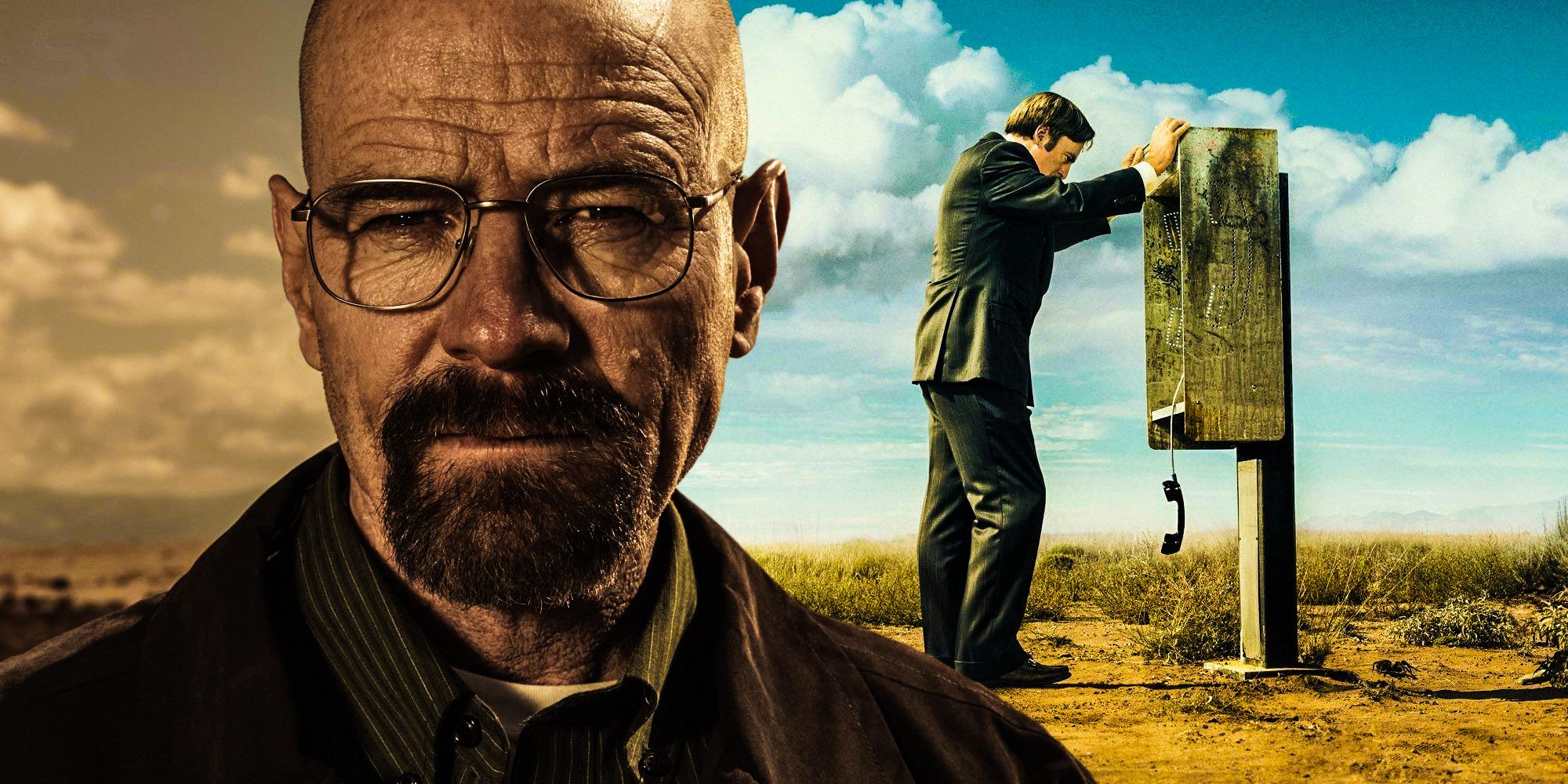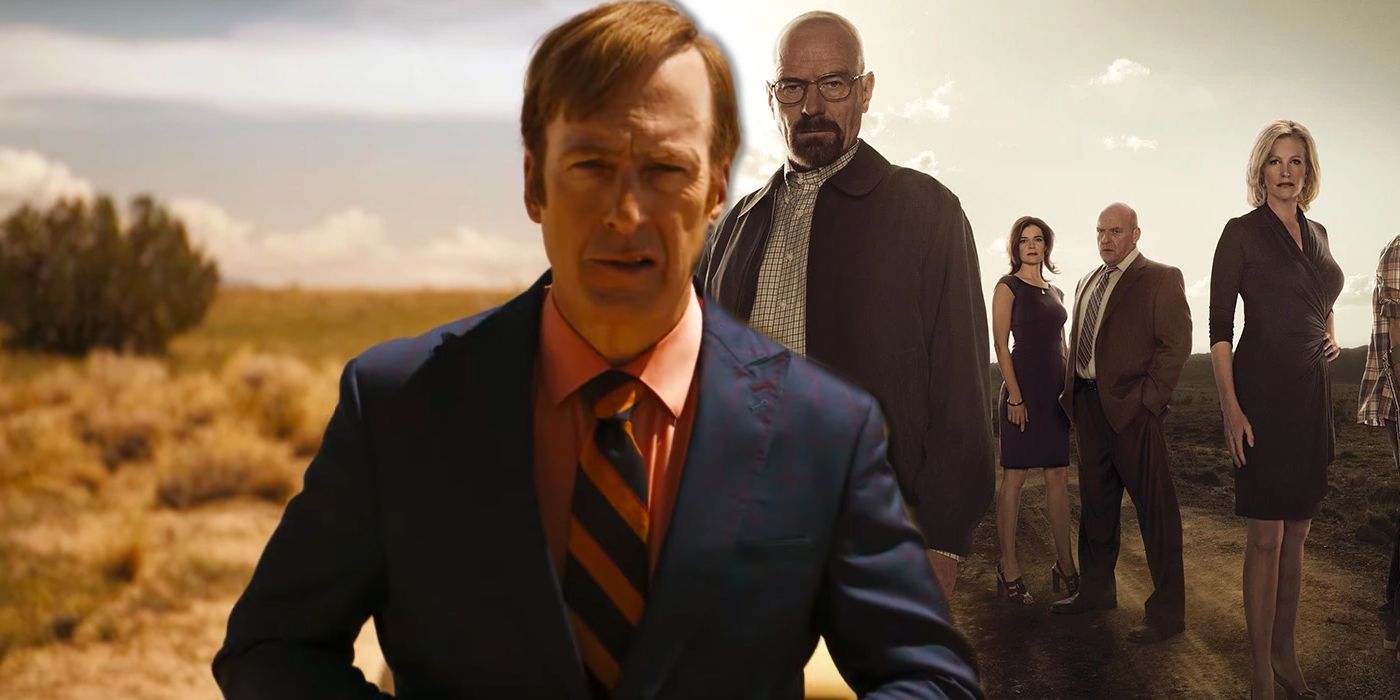Better Call Saul exceeded audience expectations, but the critically acclaimed spin-off series needs to avoid becoming too much like Breaking Bad in season 6. Admittedly, for any other show, to be compared with Vince Gilligan’s masterpiece would be a badge of honor, but Better Call Saul is that rare prequel that threatens to eclipse the original thanks to its nuanced characterization, superb performances, and slow-burn plot. Better Call Saul season 6 needs to stay true to what makes it unique in order for the show to finish strong.
When Better Call Saul debuted on AMC in 2015, critics were skeptical. Breaking Bad was such a hard-hitting, one-of-a-kind hit that many considered it a mistake to make a prequel revolving around lawyer Saul Goodman (Bob Odenkirk), whose previous role provided comedic relief to balance out Walter White’s (Bryan Cranston) tragic antihero. The critics were proved wrong: The Better Call Saul scriptwriters added a new gravitas and depth to the character of Goodman, aka Jimmy McGill, and Odenkirk’s stellar performance gave the former shark in a suit a moral compass, humanity, and new-found depth he had previously lacked in Breaking Bad.
Whereas Breaking Bad is driven by a fast and furious plot that sees the protagonist, Walter White, hurtling from high-school science teacher to big-time drug dealer, Better Call Saul’s slow transformation of the optimistic and breezy Jimmy McGill into the cynical and hard-bitten Saul Goodman is a masterclass in character development. White is a victim of circumstance, but McGill is the architect of his own demise. Better Call Saul differentiated itself by being driven by character development, rather than plot, but parts of season 5 were too reminiscent of Breaking Bad. The tempo had changed, and as a result, Better Call Saul season 5 was less of a character study — robbing itself of the very thing that made the show so great.
As a prequel, Better Call Saul needs to tread a fine line between being its own entity and finding its place in the Breaking Bad universe. What made the show such an unexpected success was not just its cinematic-like craftsmanship and careful execution, but its willingness to spend time with its characters. Breaking Bad was an exciting show, and although its characters were fully-developed, it was the high-stakes action and suspense that kept audiences coming back. Better Call Saul took a different approach, allowing character motivation to dictate the plot, and allowing storylines to develop gradually and organically. Jimmy is instantly more relatable than Walter White, just as Kim Wexler (Rhea Seehorn) is a more three-dimensional secondary character than Jesse Pinkman (Aaron Paul) — and Gus Fring (Giancarlo Esposito) is given a much more intriguing complexity than he possesses in Breaking Bad, in which he is largely a one-note sinister character.
Better Call Saul’s final season has the difficult job of tying up all its loose ends in a way that sets up the events in Breaking Bad. Bob Odenkirk has already promised plenty of “fireworks” in the final season of Better Call Saul and Vince Gilligan has already promised some Breaking Bad style intensity. That in itself is not a bad thing, but it would be a shame if the tone and style of the show were compromised in the process. Better Call Saul already earned its legacy as one of the best television prequels of all time, but in order for it to stand alongside Breaking Bad as one of the best shows in TV history, Better Call Saul should strive to retain its identity and end on a high note.


